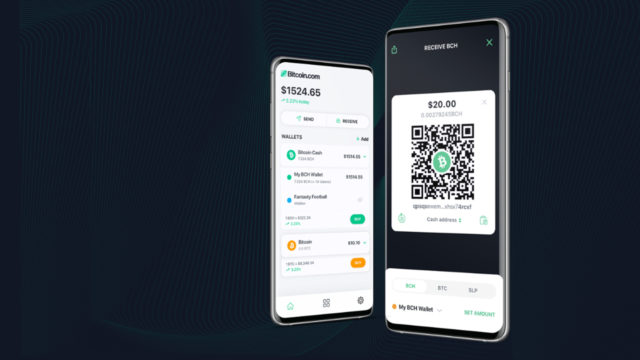The cost of developing a cryptocurrency wallet request. Cryptocurrency is a term that has gone from a niche to a worldwide phenomenon in a matter of days. Simply put, cryptocurrency is a virtual, digital currency that is created and stored on the blockchain, protected by cryptography, and intended to be used as a medium of exchange. However, it is impossible to trade cryptocurrencies without first obtaining a Crypto wallet.
A cryptocurrency wallet is a program for storing digital currencies. An investor can use a crypto wallet to loan, buy, sell, or keep track of the cryptocurrencies in their portfolios. Without a doubt, there are a variety of crypto wallets on the market. However, while the majority of cryptocurrency wallets support Ethereum or Bitcoin, some users prefer a customized solution that meets their specific needs. So now is the best time to start working on a cryptocurrency wallet app.
To give you a better understanding before you hire developers, we’ll go over the basic concepts of a Cryptocurrency Wallet Development Services, the features it should have, the technologies it should use, and the development costs.
The Different Types of Crypto Wallets
Before we go over the different types of crypto wallets, you should think about whether you want to create a centralized or decentralized wallet, also known as custodial and non-custodial crypto wallets.
A third-party organization holds your private keys and secures your funds in a custodial or centralized crypto wallet. Lost passwords are never a problem; you can always recover them after confirming your identity. Furthermore, transaction fees are lower in custodial crypto wallets. You’ll need a stable network connection to use custodial crypto wallets; otherwise, managing funds will be difficult.
Non-custodial crypto wallets, on the other hand, give you complete control over your private keys and funds. You can easily monitor and control activities with non-custodial or decentralized wallets. The best part is that authorization from your private keys is required for any transaction to take place.
You can manage your funds in a non-custodial wallet even if you don’t have access to the internet.
However, keep in mind that when using non-custodial wallets, you will be given a mnemonic phrase of 12-24 words that should be written down and kept safe because it will allow you to access your wallet again. You will lose your funds as well if you lose the phrase.
After you’ve decided whether you want a custodial or non-custodial wallet, you’ll need to choose a platform for your wallet.
Desktop Wallets: Desktop wallets are similar to other software in that they can be installed on your computer and used to store cryptocurrency. All operating systems, including Linux, Windows, and macOS, are supported by these wallets.
Online wallets: Users who cannot access their PC but want to manage or view their accounts should use online wallets. One of the major disadvantages of online wallets is that they are vulnerable to hacking.
Mobile wallets: It combines the features of both desktop and online wallets. Mobile wallets, as the name implies, are applications that can be installed on a smartphone and allow users to access their cryptocurrency from anywhere.
Hardware Wallets: Because the copy of data is stored on a hardware device such as a USB, hardware wallets are the most secure way to trade and manage cryptocurrencies. Hardware wallets are ideal for users who do not buy or sell cryptocurrency frequently.
Crypto Wallet Features
Must have Featured on Crypto Wallet App
Registration/Sign-in System: The ability to sign in is the first and most important feature to have in a crypto wallet.
OTC trading facility: Trading cryptocurrency over-the-counter, or OTC, in a crypto wallet, is private because it is done directly between two parties. Crypto-to-crypto and fiat-to-crypto trades are both possible on the OTC market.
Multi-Signature: A wallet with a multi-signature or multi-sig feature is more secure and reduces the risk of fund misappropriation by requiring multiple private key signatures for transaction authentication.
KYC verification: KYC allows you to verify and authenticate a user’s identity using official documents such as a passport or government-issued identification. KYC in a cryptocurrency wallet is ideal for ensuring the safety of a user’s funds.
Privacy: Users will have complete control over their data if they use non-custodial wallets. A private key is converted into a 12-word mnemonic phrase for the user, ensuring increased privacy.
Options to Sell/Buy Crypto Securely: Users can easily buy any cryptocurrency with a credit card over a secure transaction, and they can also sell cryptocurrency from their wallet and have the funds credited to their credit card almost instantly
In-chat transactions: The crypto wallet’s in-chat transaction feature allows users to exchange their cryptocurrencies without needing to use an exchange platform.
Cross-platform compatibility: A wallet can be made cross-platform compatible using the flexible and secure infrastructure, making it easier for a user to access their portfolio from any device.
Automated Duplicate Payment Denial: A crypto wallet’s automated detection and denial of duplicate transactions is a must-have for increased security.
API connections for crypto exchange: If the wallet is connected to the market’s leading crypto exchanging platforms via API, users can buy and sell their crypto assets without ever leaving the platform.
Multi-Asset Storage: A crypto wallet must be able to store multiple tokens depending on the needs of the user
Easy Portfolio Management: Another benefit of a crypto wallet is that it allows users to easily manage their portfolios and instantly view their transactions.
Estimated Cost of Developing a Crypto Wallet App
The cost of developing a crypto wallet app is estimated based on a number of factors, including the size of the company, the complexity of the application, the size of the crypto wallet, and its design. However, based on the features you might want to add to the wallet, an approximate range of $85k to $95k can be expected.
However, if you are interested in developing your own crypto wallet, you can hire our experienced developers.









